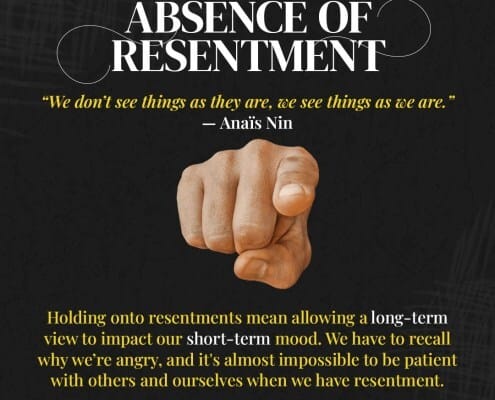Here Are Four Fast Skills On How To Become More Patient
Check out our new mental toughness book:
The mental game and mental toughness is more about subtraction than it is addition. Removing anger, frustration, fear, and/or annoyances from our daily lives is difficult. However, doing so also improves our disposition, grit, and attitude.
More importantly, when we learn how to become more patient, it also builds up one’s capacity to handle and endure future disappointment, rejection, and failure.

Acceptance
Ask yourself this question, “does more pain come from letting go or resisting?”
Acceptance of things and people as they are is difficult.
It’s why we all get stuck. Not many of us want to accept that we get older, for instance.
Not many accept being wrong or changing their mind. Few want to accept death and heartache as part of life. Few want to accept that life is not fair. It is painful to lose material possessions, friends, jobs, houses, money, championships, etc.
It’s even worse and more difficult to accept when we are cheated or swindled.
Acceptance of change in our life is difficult. Our goals change, our kids change, our finances change, our relationships change, etc. But since time is the only constant, our view and actions within time need to change as well.

Hope
When the greats in any field know that they have what it takes and are confident in their own process, it provides a level of assurance for a better future.
Confidence means they have an attitude of “when” not “if” the results will manifest.
Confidence and patience work in tandem. When we are confident, we are able to have more patience. And when we are patient, it allows us to be confident.
That is why HOPE is a source of how to become more patient.
When we have patience with the product, it grants us perspective with the process.
When we “can’t wait” and force or manipulate a situation or person, it also reveals our own level of confidence and patience.

Absence of Resentment
An absence of resentment means we have to examine our role in any given situation. We can’t change the outcome or other people without understanding our own insecurities and baggage in a situation.
It starts with us.
To possess an absence of resentment means to approach people, situations, and especially ourselves with patience.
If we have resentment toward ourselves for a past setback, then we will develop resentment towards others.
It’s a simple formula of “arrows in” also means “arrows out.”
Hurt people will hurt other people because the cycle of resentment is so powerful.
If we don’t transform our past pain, then we will transmit it to others closest to us.
In order to be patient, we must develop an absence of resentment towards others and ourselves. When we do this, time again begins to work in our favor and removes that hurt we held onto.

Ability To Wait
The ability to wait without haste or restlessness seems to be the core concept of how to become more patient. It’s what I am probably worst at.
We feel like we can’t slow down, because we perceive everything as urgent.
The crux of patience is that we have become urgent toward the un-important. Our emotions and mood tell us that it is important in the short-term, but with time, the urgent cannot be coupled with the unimportant.
We don’t wait. We scroll…
[Tweet “We don’t wait. We scroll…”]
We delete emails, mindlessly scroll social sites, text others, post videos, etc.
When we awake in the morning, we are often at odds with our own sense of urgency. And this sense of urgency is usually toward the unimportant.
[Tweet “Patience won’t always win it for you, but if you don’t have patience, it will lose it for you.”]
Dr. Rob Bell is a Sport Psychology Coach. DRB & associates coach executives and professional athletes. Some clients have included three different winners on the PGA Tour, Indy Eleven, University of Notre Dame, Marriott, and Walgreens.
Mental Toughness Podcast as we interview expert athletes and coaches about Mental Strength and their Hinge Moment.
New Blog Posts are published weekly.
Follow on Twitter @drrobbell
Follow on Instagram @drrobbell
